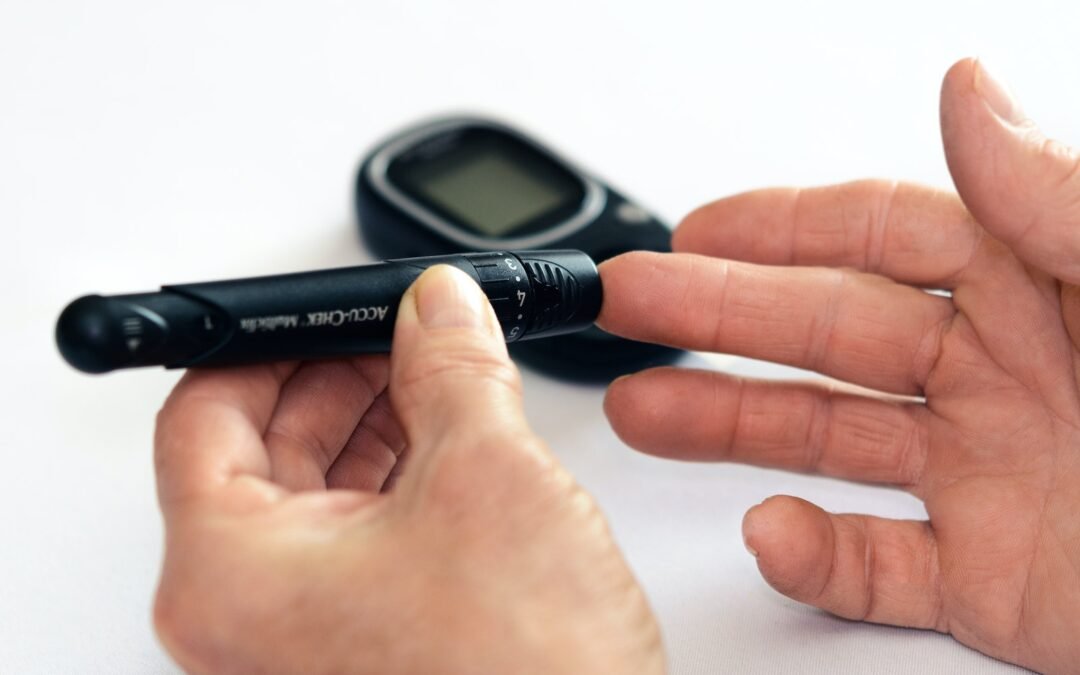The Mediterranean diet has gained popularity in recent years due to its potential health benefits. High blood pressure is a common condition that affects millions of people worldwide. Studies have shown that the Mediterranean diet may be an effective way to lower blood pressure levels.
The Mediterranean diet is a plant-based diet that emphasizes natural, plant-based ingredients. It also includes moderate amounts of fish, dairy products, and poultry. Red meat and processed foods are limited. The diet is rich in antioxidants, fiber, and healthy fats, which may help to reduce inflammation and improve heart health. Some studies have found that following the Mediterranean diet can lower blood pressure levels, which is important for preventing heart disease and stroke.
Understanding High Blood Pressure
High blood pressure, also known as hypertension, is a common medical condition that affects millions of people worldwide. It is a serious condition that can lead to various health problems, including heart disease, stroke, and kidney failure.
Blood pressure is the force of blood against the walls of the arteries. When the force is too high, it can damage the arteries and increase the risk of health problems. High blood pressure is often referred to as the “silent killer” because it usually has no symptoms, but it can cause significant damage to the body over time.
There are two types of high blood pressure: primary hypertension and secondary hypertension. Primary hypertension is the most common type and develops gradually over time. Secondary hypertension, on the other hand, is caused by an underlying medical condition, such as kidney disease or hormonal disorders.
Several factors can increase the risk of developing high blood pressure, including age, family history, obesity, lack of physical activity, smoking, stress, and a diet high in sodium.
To diagnose high blood pressure, a healthcare provider will measure the blood pressure using a blood pressure cuff. The measurement consists of two numbers: systolic pressure (the top number) and diastolic pressure (the bottom number). A blood pressure reading of 130/80 mm Hg or higher is considered high.
In conclusion, high blood pressure is a serious medical condition that can lead to various health problems. It is essential to monitor blood pressure regularly and take steps to manage it if it is high.
Overview of the Mediterranean Diet
The Mediterranean diet follows the culinary traditions of countries bordering the Mediterranean Sea, influencing a wholesome way of eating. The diet places a strong emphasis on plant-based foods like fruits, vegetables, whole grains, legumes, and nuts. It also incorporates moderate amounts of fish, poultry, dairy, and red wine, while minimizing red meat and sweets.
The Mediterranean diet incorporates healthy fats like olive oil, nuts, and seeds as a key element of its composition. These foods are rich in monounsaturated and polyunsaturated fats, which can help to lower cholesterol levels and reduce the risk of heart disease.
Research has shown that the Mediterranean diet may be beneficial for several health conditions, including high blood pressure. This is because the diet is low in sodium and high in potassium, which can help to regulate blood pressure levels.
In addition to its potential health benefits, the Mediterranean diet is also known for its delicious and flavorful cuisine. It encourages the use of herbs and spices to add flavor to food, rather than relying on salt or sugar. This can make it a satisfying and enjoyable way of eating for many people.
Overall, the Mediterranean diet is a healthy and balanced way of eating that may be beneficial for those with high blood pressure. By emphasizing plant-based foods, healthy fats, and flavorful seasonings, this diet can provide a delicious and nutritious way of eating that supports overall health and wellness.
Mediterranean Diet and High Blood Pressure
Scientific Studies
Numerous scientific studies have investigated the relationship between the Mediterranean diet and high blood pressure. A systematic review of 29 studies found that adherence to the Mediterranean diet was associated with lower systolic and diastolic blood pressure levels in both hypertensive and normotensive individuals. Another study found that following a Mediterranean-style diet for 6 months resulted in a significant reduction in blood pressure in individuals with hypertension.
Mechanism of Action
Health experts associate the Mediterranean diet with a lower risk of cardiovascular disease, including hypertension. The mechanism of action behind the blood pressure-lowering effects of the Mediterranean diet is not fully understood, but it is thought to be due to several factors.
Firstly, the high intake of fruits and vegetables provides a rich source of potassium, which has been shown to lower blood pressure. Secondly, the Mediterranean diet is low in sodium, which can contribute to hypertension. Thirdly, the diet is rich in polyphenols, which have been shown to have anti-inflammatory and antioxidant properties that may help to lower blood pressure.
In conclusion, the Mediterranean diet has been shown to have a beneficial effect on blood pressure levels in both hypertensive and normotensive individuals. The mechanism of action behind these effects is likely due to a combination of factors, including a high intake of fruits and vegetables, low sodium intake, and the presence of anti-inflammatory and antioxidant compounds.
Benefits Beyond Blood Pressure
Heart Health
The Mediterranean diet has been linked to a reduced risk of heart disease. The diet emphasizes healthy fats, such as those found in olive oil and nuts, and limits saturated and trans fats. This can help lower LDL, or “bad,” cholesterol levels, which are a major risk factor for heart disease.
Additionally, the diet is rich in fruits, vegetables, and whole grains, which are high in fiber and can help lower blood pressure and reduce the risk of heart disease.
Weight Management
The Mediterranean diet is not only good for high blood pressure but also for weight management. It focuses on nutrient-dense foods while limiting processed and refined foods, aiding in weight management.
The diet also encourages regular physical activity, which is an important component of weight management. Studies have shown that people who follow the Mediterranean diet tend to have lower body mass indexes (BMIs) and are less likely to be overweight or obese.
Mental Health
Researchers have linked the Mediterranean diet to better mental health outcomes. Studies have shown that people who follow this diet are less likely to experience depression and anxiety.
Additionally, the diet is rich in omega-3 fatty acids, which are important for brain health. These healthy fats are found in fatty fish, nuts, and seeds and have been linked to improved cognitive function and a reduced risk of dementia.
Overall, the Mediterranean diet has numerous benefits beyond blood pressure. It can improve heart health, aid in weight management, and promote better mental health outcomes. By following this diet, individuals can improve their overall health and reduce their risk of chronic diseases.
How to Adopt the Mediterranean Diet
Adopting the Mediterranean diet can be a great way to improve your health and manage high blood pressure. Here are some tips to help you get started:
- Focus on plant-based foods: The Mediterranean diet is primarily based on plant-based foods. These foods are rich in fiber, vitamins, and minerals, which can help lower blood pressure.
- Choose healthy fats: The Mediterranean diet emphasizes healthy fats such as olive oil, nuts, and avocados. These fats can help reduce inflammation and improve heart health.
- Limit red meat: Red meat is limited in the Mediterranean diet. Instead, focus on lean protein sources such as fish and poultry.
- Use herbs and spices: Herbs and spices are used to add flavor to food in the Mediterranean diet. This can help reduce the need for salt, which can contribute to high blood pressure.
- Enjoy meals with others: The Mediterranean diet emphasizes the importance of enjoying meals with others. This can help reduce stress, which can contribute to high blood pressure.
By following these tips, you can adopt the Mediterranean diet and improve your health.
Conclusion
In conclusion, the Mediterranean diet has been shown to have a positive effect on high blood pressure. Studies have shown that following a Mediterranean diet can lead to lower blood pressure levels, as well as a reduced risk of heart disease and stroke. Additionally, the diet is easy to follow and can be adapted to fit individual preferences and dietary restrictions.
However, it’s important to note that the Mediterranean diet should not be used as a substitute for medical treatment for high blood pressure. It’s important for individuals with high blood pressure to work with their healthcare provider to develop a comprehensive treatment plan.
Overall, the Mediterranean diet is a healthy and delicious way to promote heart health and lower high blood pressure. By incorporating more fruits, vegetables, whole grains, and healthy fats into their diet, individuals can improve their overall health and reduce their risk of heart disease and other chronic conditions.





